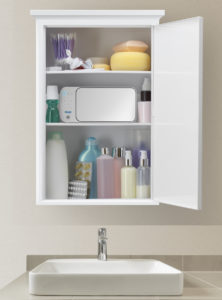caregivers, parents, healthcare providers, law enforcement officials, educators and others, which will assist them in preventing the abuse of prescription drugs.
“It’s really a comprehensive array of resources that is very much the center of our work for the past five or so years,” Taylor said. “Anything we can do to educate people to clean out their medicine cabinets, and to talk to kids about the dangers of medicine abuse is a hugely important effort. Ninety-one people a day in the United States die from an overdose, so it’s really critical that we are getting on top of this problem and helping to reduce this extreme death toll in our country.”
New technology can play a role
iKeyp is a smartphone-enabled personal safe that protects against medication diversion and can be placed securely within a kitchen or medicine cabinet without the use of tools.
The device features a keypad where a security code can be entered, and an accelerometer that detects movement, if triggered, can alert the owner’s smartphone or smart device linked to iKeyp.
Prescription painkillers go through a well guarded and secured process up until a pharmacy sells them to a patient, who are often parents, said Mitch Danzig, co-creator and chief operating officer of Solo Technology Holdings. “The parent then goes home and leaves [the medication] on the kitchen counter or unlocked in a medicine cabinet. The cycle of security is broken when pharmacists hand them to an individual because people aren’t locking it up.”

Solo Technology Holdings has been working with several substance abuse prevention coalitions nationwide, Danzig said, “because, ideally, these are the people at the forefront of this battle, and tell people that this stuff is dangerous.”
The iKeyp will be offered at a discounted price during the campaign, which runs until March 12, 2017. The company will donate 25 percent of all sales profits during the campaign, which will directly help the non-profit’s objective of benefiting families suffering from substance abuse.
“It is essential that people start treating many of the prescription medications that are out there, especially opioids, like people do when they buy a gun, or when people get into a car and put on a seat belt,” Danzig said.















